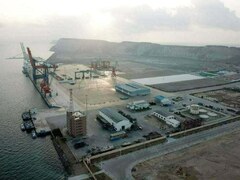US President George W. Bush's administration is stepping up pressure on Opec to abandon an output cut as it grapples with a politically inflammable surge in energy prices.
The administration is stepping up the rhetoric to dissuade the Organisation of Petroleum Exporting Countries from carrying out a decision to lower output by one million barrels per day from April 1.
OPEC MEETS JULY 31 IN VIENNA: White House chief of staff Andrew Card revealed last week that the White House was pressuring Opec members behind the scenes. "We hope that Opec will continue to increase production so that there can be more supply in the marketplace," Card told MSNBC television.
"We'll be talking with our allies that participate in Opec and make sure they continue to keep supplies coming."
US ally Saudi Arabia is the world's biggest producer, but Card did not name names.
The souped-up pressure coincides with a surge in crude and derivative energy prices.
Gasoline, or petrol, prices, have soared, in part because of the crude input costs, and because of relatively low inventories ahead of the busy summer "driving season" for American motorists.
US gasoline prices at the pump hit an all-time high Tuesday, and the retail price will likely go higher because of supply-and-demand issues, the American Automobile Association said.
US motorists were shelling out an average of 1.738 dollars per gallon (3.8 liters) for self-serve regular gasoline, the highest average price on record, according to AAA's Fuel Gauge Report.
It is a sensitive issue, particularly in the run-up to November 2 elections, and for a president with past connections to the oil industry.
Democratic presidential hopeful and Senator John Kerry immediately jumped into the fray, declaring in a statement: "We need a new energy policy. But George Bush stubbornly refuses to admit that his economic policies aren't working, and now even in the face of record high gas prices, he still stubbornly refuses to change his failed energy policies that are hitting families so hard at the pump."
OPEC EXPECTED TO HOLD FIRM ON PRODUCTION CUTS:
VIENNA: Despite soaring gasoline prices in the United States and high oil prices world-wide, Opec may hold firm on a one-million-barrel per day production cut for April 1 when it meets in Vienna on Wednesday, analysts said.
But the Organisation of Petroleum Exporting Countries has surprised the market in recent months and oil prices were vacillating at the end of the week after news of a surge in US crude oil inventories and signs Opec might in fact delay the planned output cut.
Still, oil analyst Bruce Evers said: "My best guess is they will cut. They can't afford to be reactive, they have to be proactive," in dealing with a predicted fall in demand for oil as spring arrives in the northern hemisphere.
Speaking by telephone from London, Evers said that if Opec changes its mind, after in February announcing an the cut in its production quota from 24.5 million bpd to 23.5 mpd as of April 1, then "some very long positions (in the oil market) could be unwound rapidly.
BR100
7,865
Increased By
26.9 (0.34%)
BR30
25,605
Increased By
145.4 (0.57%)
KSE100
75,279
Increased By
347.9 (0.46%)
KSE30
24,210
Increased By
63.8 (0.26%)





















Comments
Comments are closed.